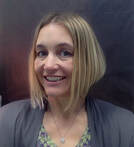|
The longer that I am in education - the more books I read, conferences I attend, workshops I give, Twitter feeds I follow - the more I realize just how much I have to learn. Because of the very nature of our craft, teaching is a reflective process. Even when I taught a killer lesson and thought to myself “nailed it” there was always that nagging voice in my head saying, ”But you could have done this instead…”
The more I learn, the more I explore what it means to be a ‘good teacher’, the more I reflect back on my time as a high school teacher and want to cringe. I sincerely need to apologize to many of my former students for all the times I made the wrong decision, said the absolute wrong thing, and even taught the mathematics incorrectly (2001-2002 Nathan Hale AP Calculus students, I’m looking at you!) These are the moments that still haunt me now, many years later. I can name too many times when I did not show compassion towards my high school students and their complex lives outside of school. Math class had to come first! I regularly assigned a compassion-less amount of homework. Not to mention all of the students that I taught in a very procedural way during my first few years in the classroom. I perfected the "sage on the stage" approach to teaching. Reflecting back now, I didn't know what I didn’t know. Do you know who did know that there was a more effective way to teach mathematics? The NCTM. In 1980, it published An Agenda for Action and in 1989, Curriculum and Evaluation Standards for School Mathematics. The NCTM has been calling for reform in mathematics education since I was a student. Principles to Actions arrived in 2014. In 1994, Steve Leinwand wrote Four Teacher-Friendly Postulates for Thriving in a Sea of Change. These postulates are still relevant and timely to math teachers today. I chuckle whenever I hear the phrase “new math.” Educators like Steve Leinwand and organizations like the NCTM have been calling for change for decades. This is not new. What is new is that teachers and schools are finally listening and change is occurring. If you are a former student of mine, please know that I continue to grow from my mistakes. If you are a teacher who is bravely trying something new this year, sometimes that is enough. I recently read an excellent article by Sunil Singh, Mathematics: In the Age of Brene Brown, about failure and vulnerability in the mathematics classroom. As teachers, not only do we need to show vulnerability, but we need to practice self-compassion when we are vulnerable. Instead of looking backward and only saying what I could have done differently, I acknowledge and own my past mistakes and use them to inform my future. My mission is to use my past experiences, mistakes and all, to help other educators learn and grow and they undertake the very complex and wonderful job of teaching mathematics.
0 Comments
Leave a Reply. |
Nicole FedioMathematics Consultant at Mathematique Archives
February 2020
Categories |

 RSS Feed
RSS Feed
